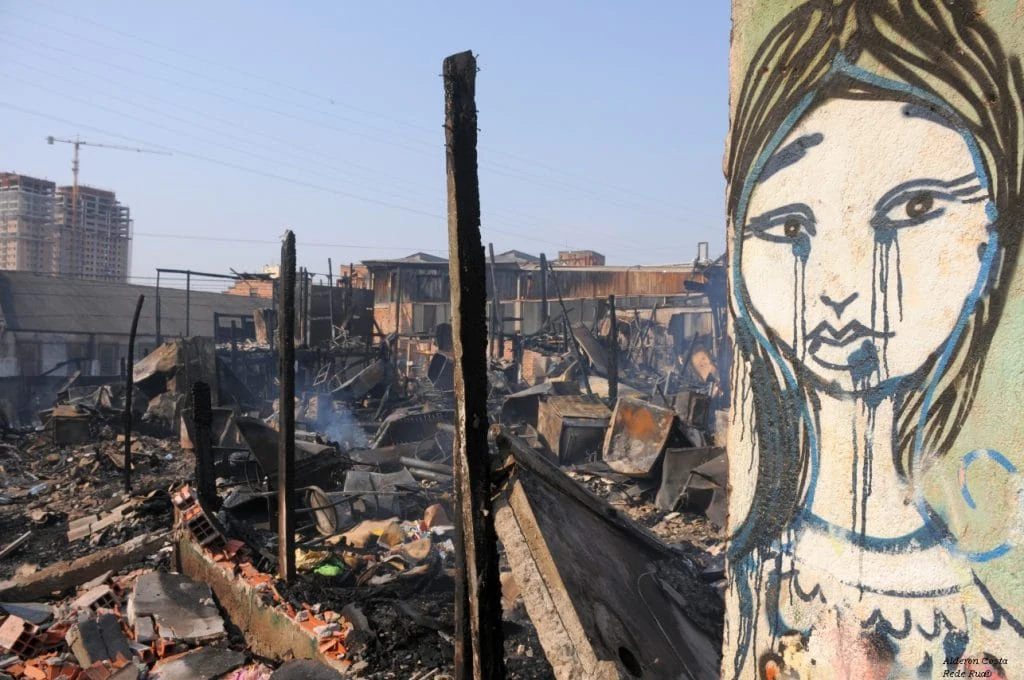The preparations so far for the 2014 World Cup in Brazil have triggered many human rights violations. However, the affected population, which has organised itself into citizens' committees, is encountering walls from the Brazilian authorities. For this reason, those affected are trying to make themselves heard at higher levels.
There was great joy when, on 30 October 2007, Brazil was chosen to host the 2014 World Cup. The joy also lasted for some time. But for many people in Brazil, the joy has now gone. Every day, in order to meet the requirements of the World Cup and the wishes of property speculators, human rights are violated and families are driven from their homes.
Displacement of indigenous people in Rio
One of the many examples of these abuses took place in Rio. Just a few days ago, the military police forcibly evacuated the former Museum of Indigenous History in Rio, inhabited by indigenous people, to make way for the parking lot of the Maracana football stadium. This led to riots, which were impressively recorded in a YouTube video.
Brazilian guest at the Basel Museum Night
To draw attention to these violations, terre des hommes schweiz, together with the Sports Museum, invited a guest to the Basel Museum Night in January. Argemiro Ferreira de Almeida (member of the National Network of World Cup Citizens' Committees of the ANCOP venue) spoke to the audience about the grievances that have arisen in the course of preparations for the World Cup.
Hearing at the Olympic Committee
However, it is not only the World Cup that is problematic, but also the 2016 Olympic Games, which will also be held in Brazil. They also hold potential for social ills. The Olympic Committee seems to be aware of this and, at the request of terre des hommes schweiz, invited Argemiro Ferreira to Lausanne on 25 January to share his experiences.
World Cup Citizens Committee before the UN Human Rights Council
The Ferreira hearing has encouraged the citizens' committees to step up their efforts, which in Brazil regularly run into sand, to a higher level. Now, on 4 March 2013, another ANCOP representative, Giselle Tanaka, was allowed to speak to the UN Human Rights Council about this issue. She did so at the session where the new report of the Special Rapporteur on the Right to Housing was presented. The speech of Giselle Tanaka can be found here.
No co-determination of the people
In contrast to the Swiss media, which only rarely deal with this issue, and the Brazilian government, which consistently keeps quiet about it, this is an important topic in the Brazilian media. The daily Estadao, for example, reported on Tanaka's speech in Geneva and praised in the last paragraph of the report the fact that, unlike Brazil, the Swiss people were allowed to vote on their candidacy for the 2022 Olympic Games.


